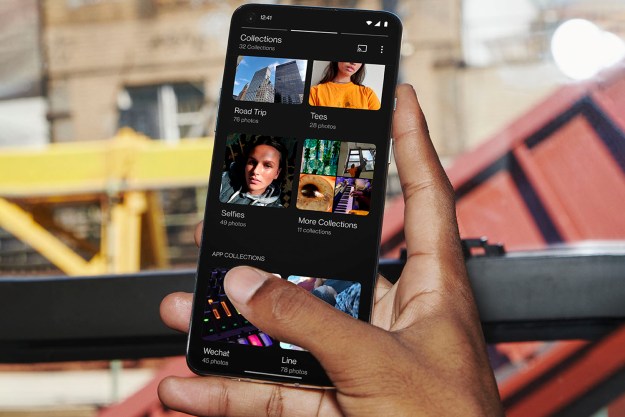Yesterday, T-Mobile not only officially announced its 4G LTE network, it also brought that network online in select cities, including here in New York City. We got a chance to see the network running on several different smartphones: the iPhone 5, HTC One, Galaxy Note 2, BlackBerry Z10, and a tiny bit on the Galaxy S4. T-Mobile’s purpose was to wow the crowd with these phones’ lightning fast speeds, and we did see fast downloads and uploads. Thing is, since the network is ultra new, there are few devices actually running on it. Thus, the speeds are going to be fast.
We experienced the same when Verizon, then AT&T, then Sprint rolled out their LTE networks. Ridiculous, mind-blowing speeds when the network is new slowing down to not-so-ridiculous but still fast and impressive speeds once millions of others share it with you. It’s worth noting that the network speeds we saw on devices at today’s launch are higher than those we saw when Verizon’s LTE network launched back in 2011 and there weren’t many people on it. The Galaxy Note 2 scored 56 Mbps up and 23 Mbps down, the HTC One got 34 Mbps up and 21 Mbps down, the iPhone 5 (the slowest) is still impressive with 27 Mbps up and 13 Mbps down. Those speeds are many times faster than what you likely get at home on Wi-Fi. Watch the video above to see how these scores compare to Verizon’s network right now.

Another benefit T-Mobile can offer that Verizon and Sprint don’t (on phones, anyway) is fallback to a network faster than 3G when you’re out of LTE range. LTE smartphones on T-Mobile will work on the HSPA+ 42 network as well, which is nationwide. T-Mobile also claims that the HSPA+ network has 50 percent more bandwidth than AT&T’s, so even when more people pile on to take advantage of the data plans, customers won’t experience considerable choking.
The promise of ultra fast speeds is a tempting one, but there are some drawbacks in the data plans T-Mobile offers. Each of them is labeled “Unlimited,” but the speed of your unlimited web depends upon usage. The $50 plan only gives you 500MB of LTE data before you’re busted down to 2G. At least you can have all the 2G data you want for no extra charge … The $60 plan gives you 2.5GB of high speed, which is more in line with what most people use in a month. Again, once you use that up, you’re on 2G until the rollover to the next month. The $70 unlimited plan is all high speed 4G all the time. However, if you want to use the mobile hotspot/tethering on your phone, you only get 500MB of 4G for that. 500MB is nothing on a computer, and this allotment will get chewed up quickly.

The $50 plan may be the most economical, but once you experience LTE, are you going to be satisfied with only 500MB of it? I think we’ve hit on T-Mobile’s evil plan.
As evil plans go, it’s not a terrible one. If, over time, the carrier’s LTE network holds up better than Verizon’s or AT&T’s under pressure (and, we can only assume, Sprint’s will catch up to it), then T-Mobile may end up being a real competitor and not an also-ran.
Editors' Recommendations
- Have T-Mobile? Your 5G service is about to get much faster
- T-Mobile’s newest plans are exciting for new (and old) customers
- T-Mobile is leaving AT&T and Verizon in the 5G dust
- T-Mobile’s 5G Ultra Capacity network has four times the coverage of Verizon and AT&T
- T-Mobile’s 5G and 4G LTE networks are nearly twice as fast as Verizon and AT&T


